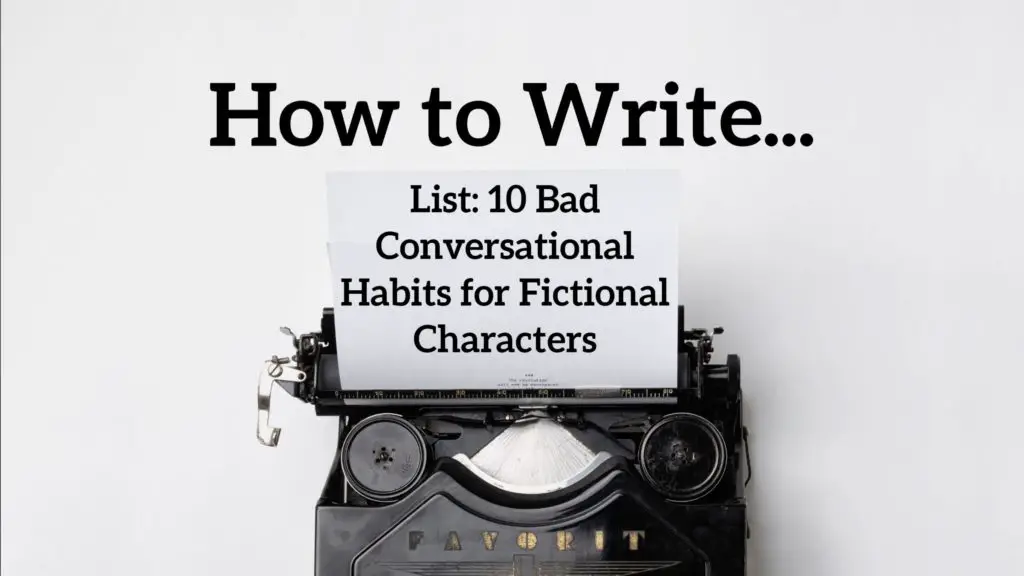
List: 10 Bad Conversational Habits for Fictional Characters
If you have been enjoying our series on “Bad Habits for Fictional Characters” give us a shout out and a share!
Interested in starting a blog of your own? Check out Bluehost.
Try Grammarly, The Free tool that should be in every writer’s toolbelt.
List: 10 Bad Conversational Habits for Fictional Characters:
- Constantly interrupting others before listening
- Thinking what you have to say is more important than what they have to say
- Assuming they know what others are going to say
- Being “the Gossip”
- Forgetting what you’ve already told someone
- Forgetting what others have told you
- Obnoxiously dealing with throat flem
- Habitually rambling
- Forgetting names
- Not looking into someone’s eyes when they are talking to you
Interested in starting a blog of your own? Check out Bluehost.
Try Grammarly, The Free tool that should be in every writer’s toolbelt.
List: 10 Bad Conversational Habits for Fictional Characters
Why you would want to be thinking about bad habits for your fictional characters that you are writing?
Bad habits help your audience resonate with your characters.
They make our characters more believable.
Adding a few bad habits to our characters will make them more enjoyable to our readers. After all, no human is perfect and that should include not all but most of our fictional characters.
Hope this helps!
Interested in starting a blog of your own? Check out Bluehost.
Try Grammarly, The Free tool that should be in every writer’s toolbelt.
Other posts you might love to dig into:
3 Tips How to Write Lovable Villains
List of 10 Bad Habits Fictional Characters Need Help Breaking
How to Write the Ultimate Climax of Your Story
Interested in starting a blog of your own? Check out Bluehost.
Try Grammarly, The Free tool that should be in every writer’s toolbelt.
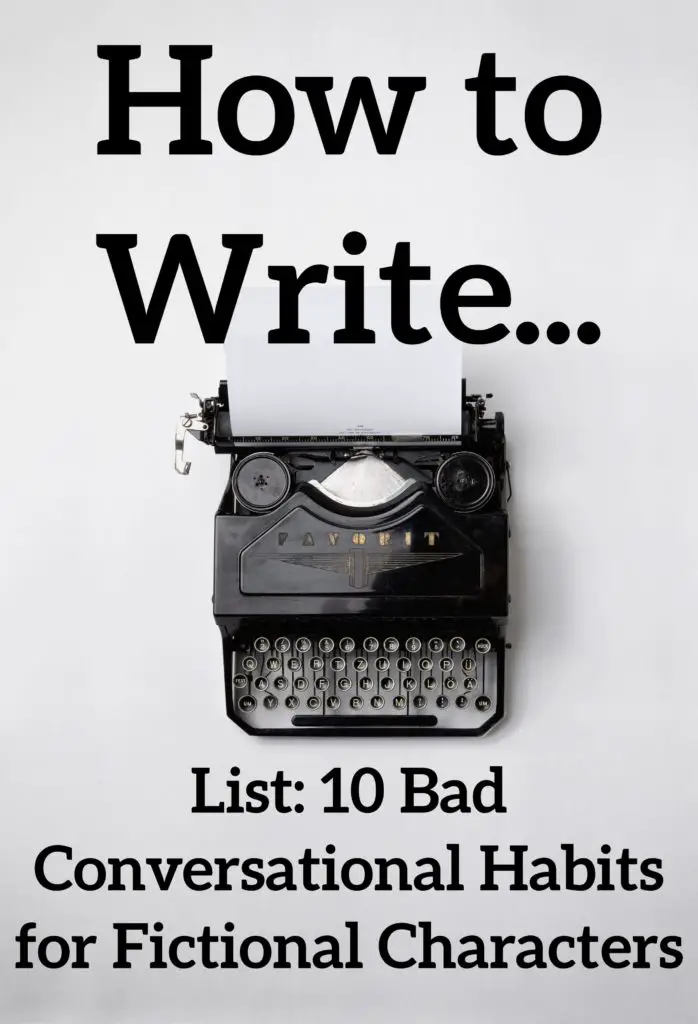
Make sure your posts are readable. Use this readability score check.
Interested in starting a blog of your own? Check out Bluehost.
Try Grammarly, The Free tool that should be in every writer’s toolbelt.
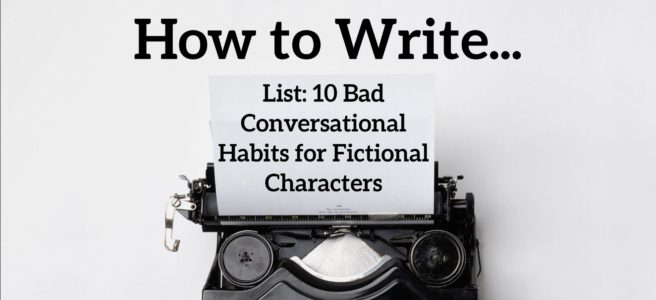

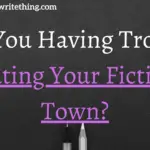

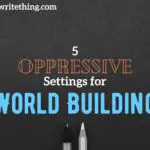
11. Adding an excessive and unnecessary amount of details.